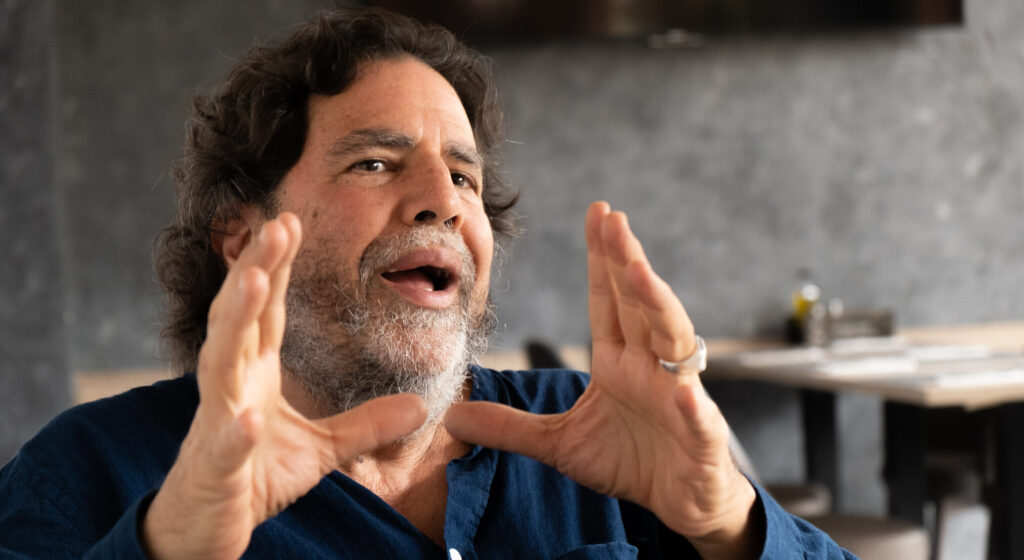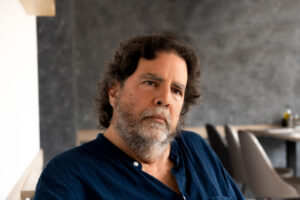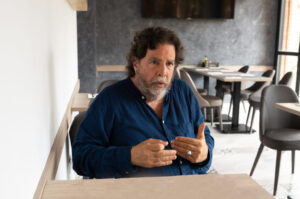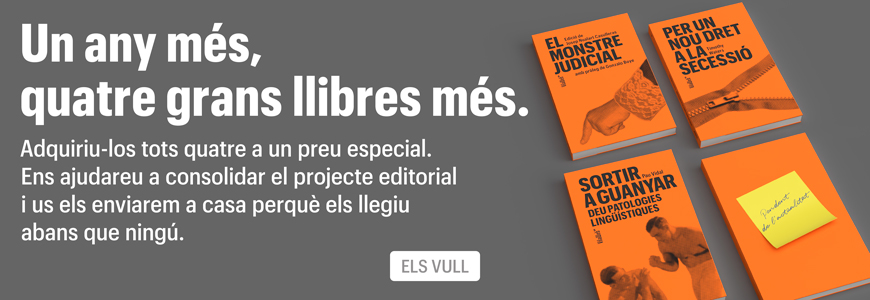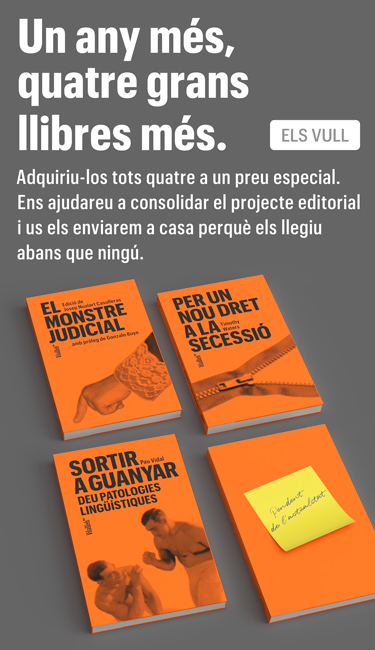08.07.2020 - 15:04
|
Actualització: 08.07.2020 - 17:04
Ramón Grosfoguel (1956) is a sociologist and an associated professor at the University of Berkeley (California). This Puerto Rican academic is a specialist in decolonisation and racism who knows Catalonia well and visits often. He sympathises with Catalonia’s independence process, perhaps due to his own Catalan heritage: some of his ancestors originally came from the Catalan city of Tarragona. Either way, Grosfoguel follows Catalan politics on a daily basis and is permanently in touch with Catalans.
Professor Grosfoguel is a straight-talker who has no qualms about openly stating that Catalonia’s political class is seriously lacking in leadership and remains divided between those that advocate action and confrontation and those who are looking to play for time and start a dialogue. This is a cross-party divide and Grosfoguel respectively refers to the two factions as “cuixartists” (inspired by Òmnium Cultural leader Jordi Cuixart) and “junquerists” (named after Oriol Junqueras, the leader of Esquerra Republicana de Catalunya). Speaking from California, in our telephone interview Grosfoguel discusses imperialism and decolonisation, his specialities, and their strong ties to the Catalan case.
—You follow Catalan politics keenly, all the way from California. Why so much interest?
—Because I have Catalan family. Starting in the 19th century Puerto Rico welcomed many Catalan immigrants. My own mother, who is ninety-five years old, is called Carmen Lídia Bidot Pàmies Domènech, [Catalan surnames]. She doesn’t speak Catalan herself, but her parents were born in Tarragona. Before learning about it, I visited Tarragona and I used to tell my friends: “I don’t know what it is about this place, but I feel right at home”. Especially the old town, the upper side. I felt something unusual and I’m not superstitious. I used to bring it up in conversation. Years later a great-great uncle of mine, who still lives in Palomar —the same neighbourhood he settled down in when he arrived in Puerto Rico, in the village of Camuy— casually mentioned that he kept all the documents from our Tarragona ancestors. When he told me that, I was dumbstruck. I wanted to see the papers and, indeed, my ancestors had come from Tarragona city. And their original home address was in the upper side, Tarragona’s old quarter. I’m not kidding you. If you browsed through a telephone directory in Puerto Rico, you’d be blown away. All the surnames are Catalan. It’s quite something.
—You teach decolonisation. How do you feel about knocking down statues of Colombus?
—Fine. They’re an embarrassment. Columbus was notoriously genocidal, a full-blown colonialist. And the colonisation of the Americas goes hand in hand with genocide and the destruction of civilisations and fascism. You cannot understand Nazism without colonialism. Hitler followed the blueprint of the Europeans in Africa, Latin America and Asia. He brought it to Europe to be used against other Europeans. In his famous book Discourse on Colonialism Aimé Césaire masterfully showed the connection, three years after WW2. With Hitler, Césaire put two and two together. The master race.
—Spain as an imperial project. This is one of your criticisms.
—Spain remains an imperial project. It is a huge fabrication. Spain has never existed as a nation. There are Castilians, Catalans, Basques, Andalusians … But Spain? Its origin is imperial: the conquest of Al-Andalus and the Americas. Look at General Franco: in many ways the Spanish Civil war is nothing but bringing back the colonisation methods used in Northern Africa to mainland Spain. Franco had been wreaking havoc in Morocco for ten years. And that’s the same army he brings to the mainland. That is why we see scenes like this: the army killing people in bullrings. Five thousand people in Extremadura. They killed five thousand people in a bullring. What Césaire wrote about Nazism also applies to Franco’s regime.
—How do you see Catalan and Spanish politics today?
—The Spanish state has become more centralist, conservative, neocon, imposing an economic chokehold … It’s a disaster. And a great depression is coming. If you recall, Catalonia’s independence movement grew with the 2008-09 recession. As I see it, we are entering a worse situation than in 2008 and 2009, because this recession won’t be short-lived. A great depression is on its way. The conditions exist for Catalonia’s pro-independence movement to become stronger and make some headway. There is a people ready to put up a fight, but it has no leaders. If you remember our first interview, I characterised the two tendencies in Catalonia’s independence movement as “junquerism” and “cuixartism”. By “junquerism” I refer to an ideology that advocates giving in to the Spanish state, burying the 2017 independence referendum, turning over a new leaf and focusing on running the regional government, managing the colony for the next fifteen or twenty years. That’s what I mean by “junquerism”. But what’s worse is that it isn’t circumscribed to Esquerra Republicana [the party led by Oriol Junqueras]. You can find it in the PDECat, too. And they are in charge, especially [former Catalan president] Artur Mas and his followers, who want exactly that: to run the regional administration for another fifteen years, like Jordi Pujol did [in the 1980s and 90s]. They want to manage the colony. Furthermore, some factions within the CUP are also showing signs of “junquerism”, which is growing stronger in the party.
—How do you see the proponents of Jordi Cuixart’s way, “cuixartism”
—“Cuixartists” are holding up the torch of the October 1 independence vote. You can find them in every pro-independence organisation. Unfortunately, I think they are in a minority within the CUP at the moment. They are also a minority in ERC. In Junts per Catalunya they are either in a tie or also in a minority position. There is a major split there. The only leader that has remained loyal to the “cuixartist” camp is Carles Puigdemont. At present I think a national salvation front is a priority for Catalonia. Junts per Catalunya might be just that project: to get rid of the old remnants of Convergència [Jordi Pujol’s old party that morphed into the PDECat] and to empower the proponents of the Cuixart way within. A leader is needed who can bring together elements on the left, right and left of centre, a progressive movement that is critical of the far right, the attempt to choke Catalonia financially and of the Spanish state. A leader who can drive the independence process forward. I don’t know. Perhaps that should be done outside the political groups. A civil society initiative for a pro-Catalonia national salvation front is a priority whose need will grow ever more apparent. The recession will deepen and Spain offers Catalonia horror. If the PSOE is the most progressive option, you don’t want to know what the rest are like. I can see that, like in 2008-09, the PSOE will handle the impending budget cutbacks. We will return to a situation of financial stranglehold, imposed by Germany and the European Central Bank on Spain, which will strike Catalonia as well.
—How can this situation be averted?
—By garnering support. And by including non-separatists who nevertheless support self-determination. I’m not referring to the Comuns or Podemos. These people do not truly support self-determination: they are Spanish nationalists. When push comes to shove, they will not stand with the Catalan people in their struggle to create a future Catalan Republic. They will always throw a spanner in the works. We have seen it many times before. That’s why I’m so skeptical about Sobiranies [Sovereignties], the new foundation that [the Catalan left] has recently set up. I think it is a merely think tank to advance “junquerism”. An alliance between the pro-independence radical left and the Comuns is not the way to go. That’s not the way forward. The Comuns always end up siding with the Spanish nationalist left. To use an archetype, the alliance that’s needed is with the people and followers of Albano-Dante Fachín, who has shown himself to be a true supporter of self-determination. They are the people who rose with the independence referendum on 1 October 2017 and underwent a powerful political and ideological transformation. With them onboard we would be speaking of a large majority. This would no longer be about 48 or 52 per cent of voters, but 70 per cent of Catalan society. Why does the CUP, or elements within the CUP, seek to form an alliance with the Comuns? Why does ERC aim to reach an agreement with Podemos, Comuns and all that political spectrum? What is going on?
—Perhaps they prefer to bring together all the parties on the left?
—In Catalonia the left-right division is a failure. It cannot account for the Catalan independence process. That’s why the Spanish nationalist left loves those terms, left and right. That’s why they say Puigdemont is a conservative and not worthy of their support. Excuse me? Puigdemont is further to the left than [Barcelona mayor] Ada Colau. In the Catalan context, Ada Colau is a conservative. What did she do in order to secure her reelection? She made a deal with Manuel Valls and Ciudadanos [two conservative, unionist groups] in the city council. All of it to prevent ERC, a pro-independence party, to govern the capital of Catalonia. You can’t possibly stand further to the right than that.
—Allow me to be critical of “cuixartists”. Tsunami Democràtic [an online anonymous protest group currently inactive] didn’t last long, either. From your point of view, are the two main grassroots groups Catalan National Assembly and Òmnium Cultural strong at the moment? We may criticise “junquerists”. Very well. What about “cuixartists”? Are they doing any better?
—Indeed there is much room for improvement. When Tsunami Democràtic first came out, their civil disobedience actions were massive. But that petered out when ERC called [on Madrid] to engage in talks. That created a rift among the “cuixartists”. Many people just went home. The struggle must be persistent, uninterrupted. But internal squabbles have sent many people home. Why should I put my neck on the line while they are fighting each other to see who gets to run the colony? Why should I put myself in harm’s way when they are being disloyal to the spirit of 1 October? Many people feel that way, now. That’s why I say that a national salvation front is necessary. Literally. Either Catalonia and the Catalans build a united front for sovereignty or they will sink with Spain. There’s a great depression coming and Spanish politics will shift further to the right, amid rising fascism and a nationalist Spanish left that understands nothing. And they are not alone: you’ve got the big Spanish corporations, the powers-that-be and Germany’s Central Bank. Either Catalans get their act together to save themselves or Catalonia will sink with Spain. Your are absolutely right: “cuixartism” is divided. But it must be reactivated because the people are ready to take to the streets again. If we are to believe a talking point coming from some on the left —and being echoed by the radical left— the independence cycle is now closed. That’s a self-fulfilling prophecy. If I say it’s over, then it will be. The leaders have quit. Many people are ready and willing, but where and who with? Look at the mess they’ve made of Laura Borràs’ case [the Catalan MP who is facing graft charges].
—Are you sitting out the pandemic in California?
—Yes, at home, here in San Francisco. An awful disaster. Not only do they have the highest death toll, but the administration is negligent in every way. I am a lecturer at Berkeley and have ben teaching my classes online. I am a professor of decolonisation, that’s why I am interested in the Catalan issue, too. After all, it is an important matter from the point of view of decolonisation. I see Catalonia’s national liberation process as one of decolonisation and it might help other struggles across the world. To the extent that it is weakened and forced to do some honest work —it lives off others and extracts wealth from them— the imperial state must transform itself. Unfortunately, that transformation won’t happen unless it is triggered by the periphery of that state. That’s why the Catalan process is so important in terms of decolonising the state.
—A colony? Some might say that Catalonia is a region.
—Catalonia has no sovereign power over its own affairs. It is under the thumb of an imperial state. It enjoys no sovereignty whatsoever: neither on its borders nor on taxation. It is a stateless nation at the mercy of whatever Madrid decides. That is colonialism. You don’t need to have a bog-standard colonial administration in place. A colony is defined by a relationship of domination by an imperial state over other peoples. Take the case of the pandemic: Madrid decided to suspend Catalonia’s home rule (and everyone else’s) and they ran the regional affairs from the capital of Spain. All devolved powers were taken away. That’s why I use the word “colony”: you’re at the mercy of the empire’s wishes. I know many find it shocking, but it’s high time we called a spade a spade. Even Catalonia’s own independence movement struggles to use this sort of terminology. Well, you’re standing before an imperial state that is crushing you. And you have no sovereignty. Catalans are in a colonial situation. And amid a liberation process. I would like to emphasise that either Catalans put together a national salvation front or they will sink with Spain.
